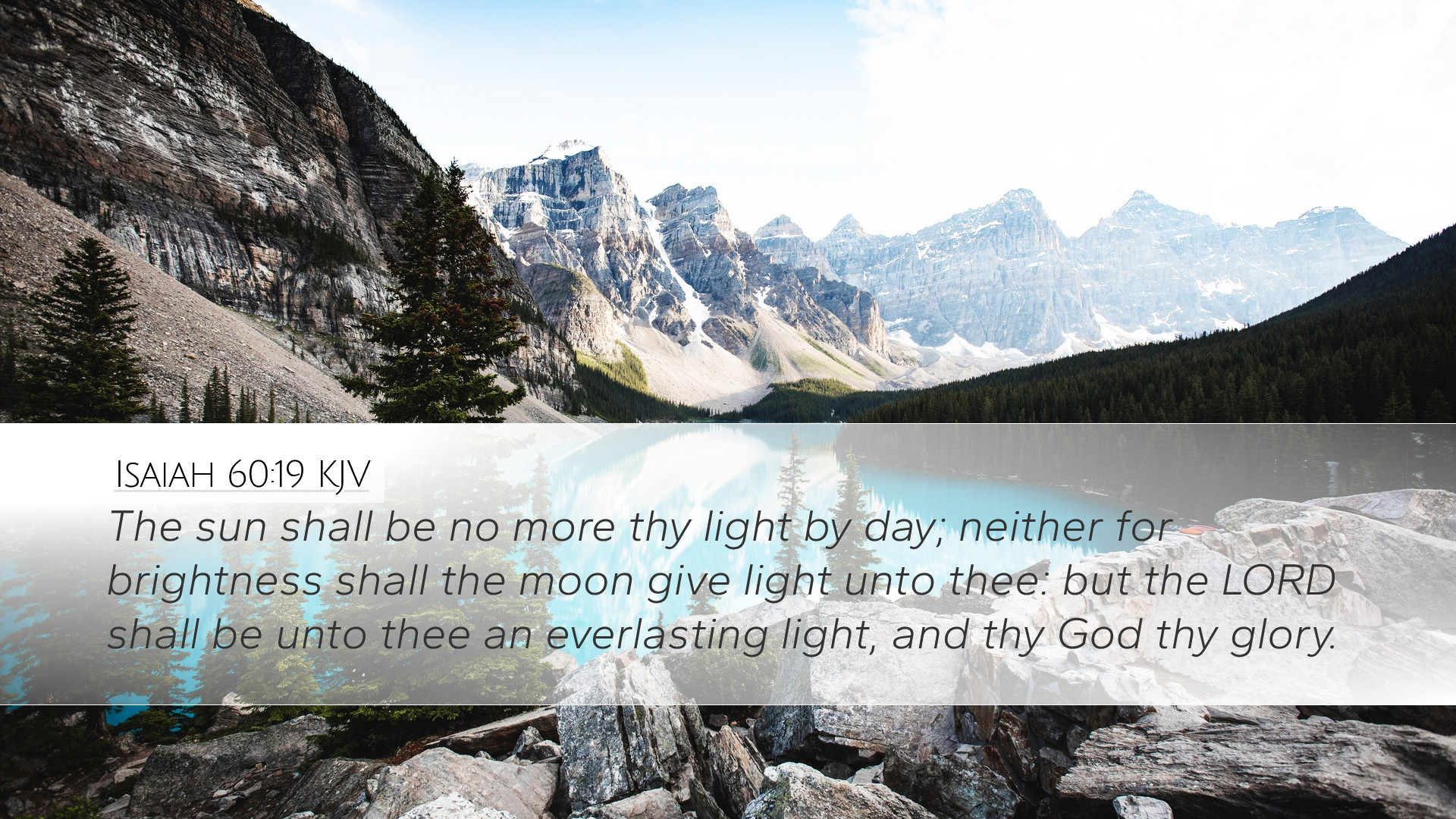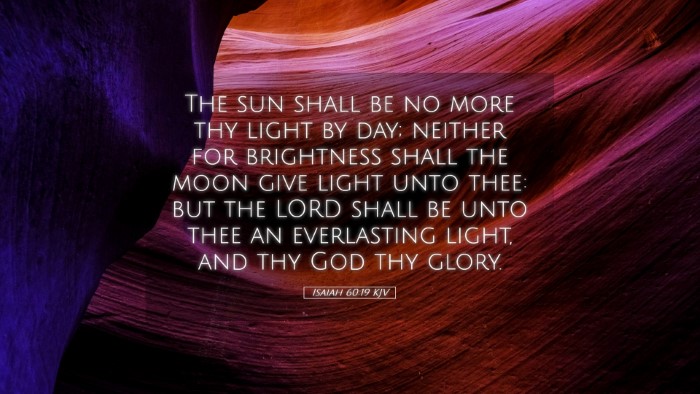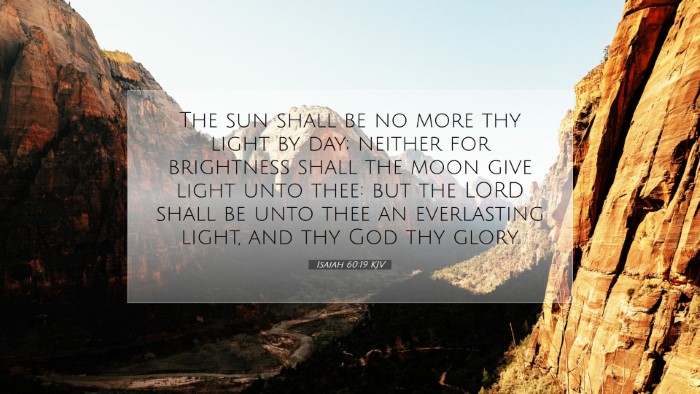Commentary on Isaiah 60:19
Verse: "The sun shall no more go down; neither shall the moon withdraw itself: for the LORD shall be thine everlasting light, and the days of thy mourning shall be ended."
Introduction
Isaiah 60:19 is a profound declaration of hope and restoration, emerging from the rich tapestry of prophecy that characterizes the book of Isaiah. This verse encapsulates God's promise of eternal illumination and the end of sorrow for His people. It reveals the transformative power of God's presence, providing not only comfort but also a vision of a new reality where divine light dispels all darkness and grief.
Theological Significance
The imagery of light in biblical literature is a frequent motif representing God's glory, guidance, and the abundance of life. In Isaiah 60:19, we observe a shift from temporal to eternal concerning the light that governs the lives of the people of God.
Contrast Between Natural and Divine Light
Matthew Henry notes that the sun and moon, although essential for temporal illumination, are subject to cycles of rise and set. Here, God is contrasting the fleeting nature of creation with His everlasting light. The sun going down typifies the cessation of life and guidance; however, God promises that His light will never fade.
The Everlasting Light of the Lord
Albert Barnes elucidates that God’s everlasting light signifies not only a physical illumination but also a spiritual and moral enlightenment. The promise that “the days of thy mourning shall be ended” speaks to the cessation of suffering and the inauguration of joy and peace in the community restored by God.
Divine Presence and Its Implications
The invitation to dwell in the light of God brings forth implications for both individual believers and the community as a whole. As God’s people, being in His light transforms their understanding, purpose, and actions. Adam Clarke emphasizes that the eternal light of God signifies His unending presence, where believers can find refuge and assurance.
Contextual Analysis
Isaiah 60 stands as a beacon of hope following a period of darkness for Israel. The context is essential for understanding its implications. This chapter prophetically addresses the restoration of Jerusalem and affirms God's intention for His people amidst adversity.
- Judgment and Restoration: The prior chapters of Isaiah speak of God’s judgment, yet this chapter refocuses the narrative on restoration.
- God’s Promise: The light symbolizes a break from divine displeasure to a future filled with blessings.
- Hope for the Nations: The light is not only for Israel but extends to the nations, showing God’s universal redeeming plan.
Symbolic Interpretations
The symbolism in Isaiah 60:19 goes beyond physical light; it encompasses hope, joy, and the fulfillment of covenant promises. The absence of mourning alludes to an eschatological truth where God wipes away tears and suffering (cf. Revelation 21:4). This eschatological hope shapes our understanding of current sufferings and encourages perseverance.
The Sun and Moon as Symbols
Matthew Henry elaborates that the sun and moon can also represent human authority and the passage of time. Their withdrawal highlights the limitations of earthly powers. The everlasting light of God obliterates these limitations, establishing His sovereign reign and eternal kingdom.
Mourning and Its Resolution
Mourning is intrinsic to the human condition, especially in the face of sin and suffering. However, the promise in this passage assures believers that God will put an end to pain. This is a source of profound encouragement to both pastors and laity, providing a solid foundation for hope as they confront the realities of life.
Practical Applications
This verse invites various applications for today’s church community and individual believers:
- Encouragement in Trials: Pastors can find in this verse the assurance to offer hope to those facing hardships, reminding them of God’s eternal presence.
- Focus on Worship: The commitment to live in God’s light calls for continuous worship and adoration, recognizing His sovereignty over time and circumstances.
- Broader Mission: The call for nations to come to this light urges believers to engage in missions with the understanding that God desires to illuminate the hearts of all people.
Conclusion
Isaiah 60:19 encapsulates the essence of God’s promises to His people, illuminating the path from earthly despair to divine hope. By integrating insights from renowned public domain commentaries, we glean a comprehensive understanding that bridges ancient texts with contemporary applications. For pastors, theologians, and scholars, this verse serves as an eternal reminder of God’s unyielding light that offers guidance, joy, and the ultimate cessation of sorrow.


